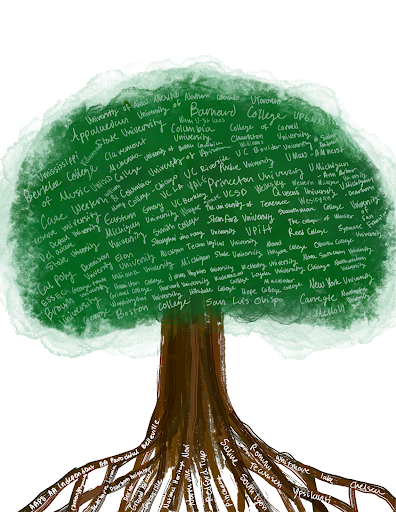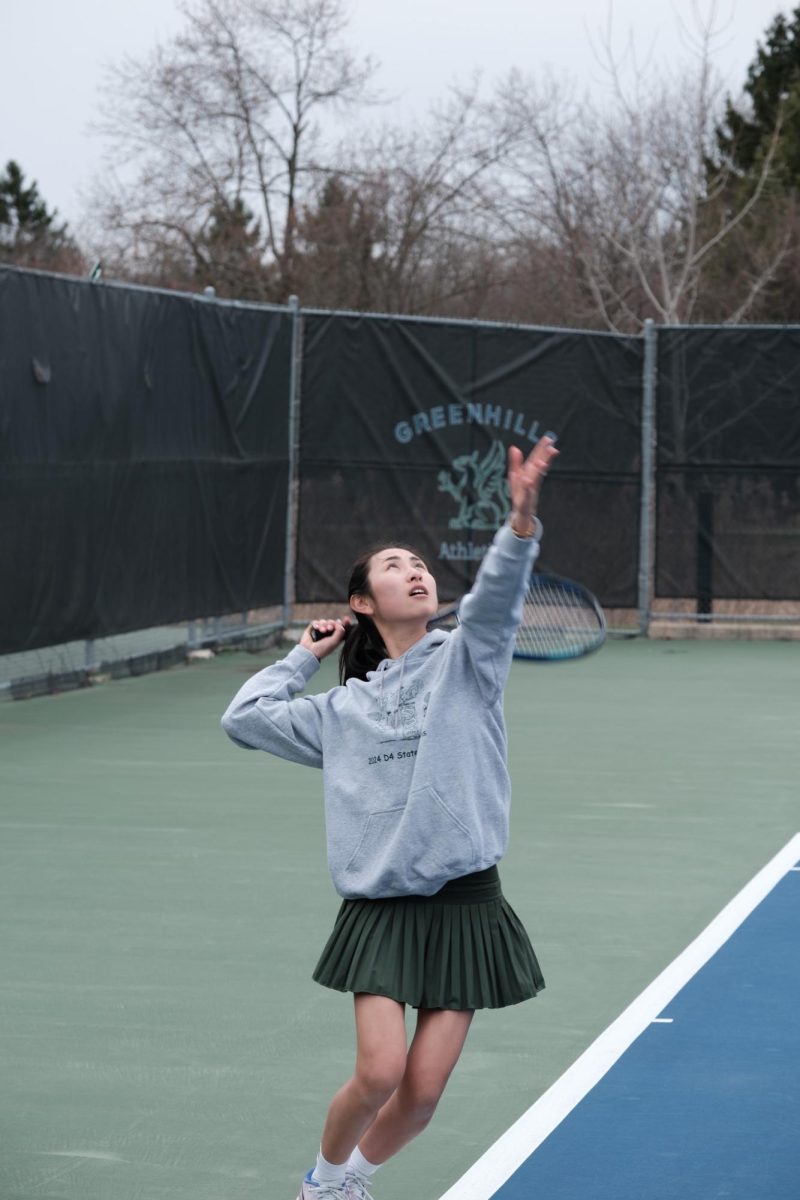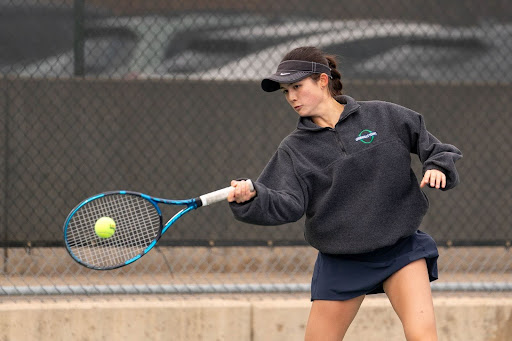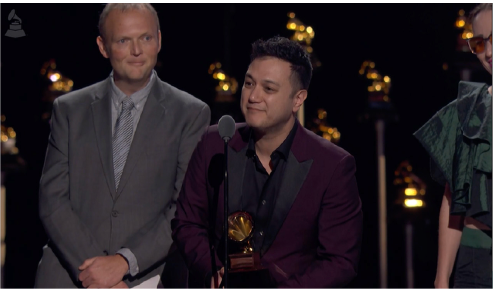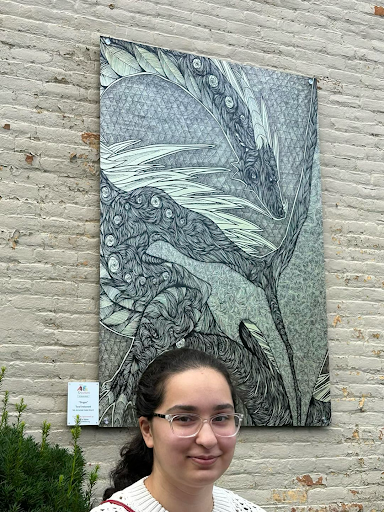English teacher Monica Lewis has been weaving words together for as long as she can remember.
“I have a memory of being really little and sitting on my floor in my bedroom with the door closed, sitting by the vent writing in my notebook,” said Lewis.
Writing has remained something personal for Lewis. It is a way for her to process the world around her, to observe and to find the story. But it wasn’t until middle school that she realized her words have the power to connect people.
“There was a class where I turned a poem in as a response to an assignment, and the teacher copied it and put it on everybody’s desk,” said Lewis. “I came into the room, and I was published.”
That moment has stuck with her. It wasn’t just a recognition of her talent but a shift in her perspective. Writing was still personal, but it had become something that could reach other people. Writing was something that mattered beyond the pages of her notebook. Lewis’s love for poetry hasn’t faded.
“I’ve been writing poetry forever, the one piece that I’ve published out in the world is a poem,” said Lewis. “There have been years of my life when I’ve written more, and years of my life when I’ve written less.”
Even as the number of poems or short stories Lewis wrote fluctuated, she always came back to the process. The words on the pages all had a connection, they were written by Lewis.
“I’ve always had it in mind that it would be nice to collect some of the poetry into a collection. It’s been a work in progress for my whole life,” said Lewis.
This poetry collection is a way to capture Lewis’s journey in writing and throughout life. Her journey is explored in her ongoing project- a poetry collection.
“Many of the poems are about staying checked into life when it’s hard to,” said Lewis. “I want people to feel like they’re not alone and that the world is a beautiful place. It’s terrible and beautiful.”
The poetry collection is not only about finding beauty in the world, but also about discovery.
“Writing for me is about discovery. It’s not about trying to create something perfect, it’s about exploring and revisiting thoughts and emotions,” said Lewis.
To Lewis, the process of writing is complex and has many meanings and importance.
“It’s not about getting it right the first time but allowing yourself the space to grow,” said Lewis. “I handwrite first in a journal, mess with it on the page there a few times, and then I type it, and then I will redo them and redo them.”
Discovery, beauty, and growing all tie into the overarching theme of her collection. The title reflects this, “Verdant.” Verdant means green and growing. The collection is a reflection of the way Lewis sees her work as an ongoing journey, where each poem contributes to a larger story of self-exploration.
Writing is therapeutic for Lewis, it’s not something she forces.
“Sometimes it starts with the place that I am curious about what has happened in that place,” said Lewis. “It’s storytelling that starts with inspiration, imagination, and a place or an experience.”
Inspiration for Lewis’s poems also comes from other people, their stories, emotions, and their experiences.
“Some of the poems are really inspired by my family,” said Lewis. “I am also inspired by poets Clint Smith and Ross Gay, who have the same ethos that I do”
Motivation for writing comes to Lewis because she wants the best for her students. Her journey as a writer has greatly impacted her journey as a teacher.
“I’m a writing teacher,” said Lewis. “So I want to be practicing what I preach. I want to be involved in writing if I’m going to teach it. So if I was a pottery teacher, ‘Verdant’ would be my pot.”
Lewis’s belief in the power of words to explore, connect, and grow is prominent, and it impacts her students. Hannah Behringer ‘25, a student in Lewis’ Poetry: Appreciation and Practice, said
“The one thing that I really appreciated out of the class is that we had a space to be creative,” said Behringer. “We were given the chance to realize that we are all connected to each other.”
Rebekah Warren ‘25 was another student of Lewis’s. In the classroom she said not only did she learn about poetry, but also how to express themselves.
“Ms. Lewis’ poetry course has changed my interpretation of creative, poetic expression and allowed myself and others to effectively use our voice in creative writing freely,” said Warren.
The idea that words have the power to bridge experiences, to foster understanding and to remind us of our shared humanity is at the center of Lewis’s work.
“It feels very cool to think that I’m gonna give it to whoever I want to. Then maybe it will pass from one person’s hands to another, and that feels like a revolution.”



